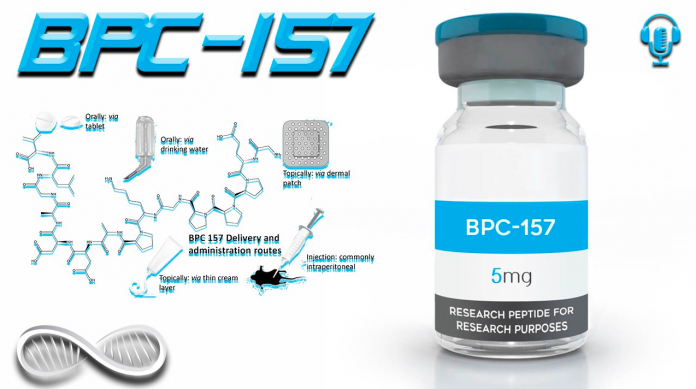The Peptides BPC 157, used in tendon healing involving tendon outgrowth, cell survival, and cell migration, has charted out a path for treating these bodily issues. It gives protection to the human body, creates wellness, and is also considered to contain anti-aging properties.
Composed of 15 amino acids, it is a partial sequence of body protection compounds (BPC) discovered in and isolated from human gastric juice. Experiments have shown the Peptides BPC 157 accelerates the healing of different wounds, including transected rat Achilles tendon.
However, there had not been extensive scientific studies on the BPC 157. Subsequently, medical science is yet to be fully sure about its side effects on the human body.
The latest medical research proves it acts effectively to heal the injured tendon. The medical experiments have shown that BPC 157 significantly accelerated the outgrowth of tendon explants.
It is also effective in the case of melanoma and non-melanoma skin cancers. In the case of the H(2)O(2) stress, it has been found that the Peptide BPC 157 can treat cells quite effectively.
It may be mentioned here that from January 1, 2022, the experimental Peptide BPC 157 has been prohibited under the World Anti-Doping Agency Prohibited List. Fearing that it may have negative effects on the human body, it has not been approved for human clinical use by any global regulatory authority.
As of now, the drug regulatory authorities have not approved synthetic production of the Peptide BPC 157. It is still an experimental compound on which extensive research is continuing in different parts of the world. The researchers are trying to find out if it can treat inflammatory bowel disease and heal soft tissues of the human anatomy.
The sportspersons and athletes are particularly advised not to use BPC 157 even as it is being advertised by different companies. The use of it can have serious health effects.
Often different websites issue advertisements claiming the BPC-157 Peptide can be used by people. But the fact remains that it is still in the stage of “research chemical” and for therapeutic purposes or human use as it can have serious consequences.
Another important point about research being carried out on Peptide BPC 157 is that the medical researchers found that the Achilles tendon transection fully recovered in rats. Thus, it may be useful for humans as far as future Achilles tendon therapy is concerned.
However, unless medical science fully carries out the experiments on the human body and proves that it can have no side effects, it should not be used by people including sportspersons and athletes.
Let pharmacology prove that it is really useful for humans and then only it should be used as a medicine prescribed by a registered medical practitioner. Nobody should try any drug which is under study and still lies in the medical experimental stage.
The BPC-157 Peptide has been medically defined to have some chemical properties that can quickly heal body injuries, ward-off fatigue of the central nervous system following intensive exercise, and retain an anabolic state post-workout, but it must not be tried unless fully approved by the government.

